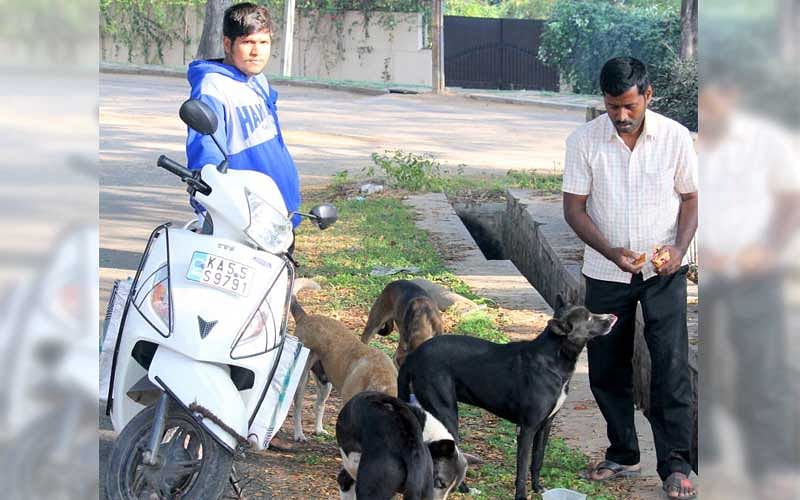
Shanta Sundaram (73) and her husband Sundaraman (85) have been taking care of four community dogs for eight years.
The dogs hang out inside their compound. Recently, Kupendra Reddy, MP, who lives in the neighbourhood, was on a morning stroll, talking with his friends.
The gates of the couple’s house, in HSR Layout, are always closed, but that day, a new worker was cleaning the place, and had left them open.
Reddy and his friends were talking loudly, and one of the dogs ran towards them.
“An angry Reddy picked up a quarrel with us. He told us he would complain to the police and that’s what he did,” Shanta says.
A neighbour told Reddy the dogs had bitten many people and asked him to do something. “The truth is, they haven’t bitten anyone. We want to see proof,” says Shanta.
Talking to Metrolife, Sandhya Madappa, honorary secretary and trustee of Compassion Unlimited Plus Action (CUPA), says, “The elderly couple called about the incident and mentioned that all four stray dogs were picked up by BBMP and taken to the Animal Birth Control (ABC) centre in Ejipura. It was surprising because BBMP can’t enter your compound just like that. Later, I called up the officials and asked them to give the dogs back to the couple.”
The police filed an FIR under Section 289 of the IPC against Shanta Sundaram. It comes into play only when a pet harms an individual; the dogs are neither pets, nor have they harmed anyone, says Sandhya.
People who feed stray dogs are often harassed by those who have little sympathy for them.
People in Shanta’s neighbourhood constantly tell her not to feed stray dogs, arguing that “they are a nuisance.”
Madhurima Bhattacharjee, fashion designer, fed stray dogs continuously for two years. Later, as work commitments increased, she stopped.
“I used to feed dogs very late at night so we have to deal with fewer people. The positive thing in feeding community dogs is they stay healthy and can guard the community better. It is usually seen that only if a dog is hungry, it bothers people. Otherwise, it is happy and chilled out.”
The Animal Welfare Board of India issues feeder cards, which is an organised way of dealing with the problem, Madhurima says.
Sandhya says every neighbourhood has three categories of people—dog lovers, those who are neutral, and people who consider dogs a nuisance.
“Dogs are territorial animals and that is why they should not be relocated. It is more of a phobia than a nuisance that some people don’t like stray dogs. Dogs generally don’t attack anyone without provocation,” she says.
Sandhya feels it is equally important for animal lovers to understand that we live in a society where we must not cause inconvenience.
Time is a factor that feeders should keep in mind. They should feed at times when not a lot of people are around.
“About 90 per cent of the problem can be solved just by becoming a responsible feeder,” says Sandhya.
Metrolife called Kupendra Reddy, but a man who answered the landline said he was away in London, and he couldn’t share his mobile number.
How to feed strays quietly
The solution to the conflict is to be responsible feeders, says Sandhya Madappa of CUPA.
“Don’t feed dogs in high public density areas, instead, choose a place that is isolated or secluded. Don’t feed dogs in front of someone else’s house and litter the place. Clean up after feeding a dog,” she advises.